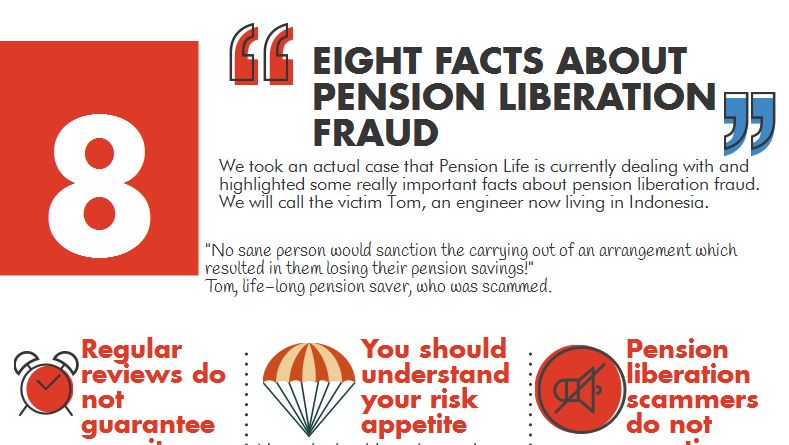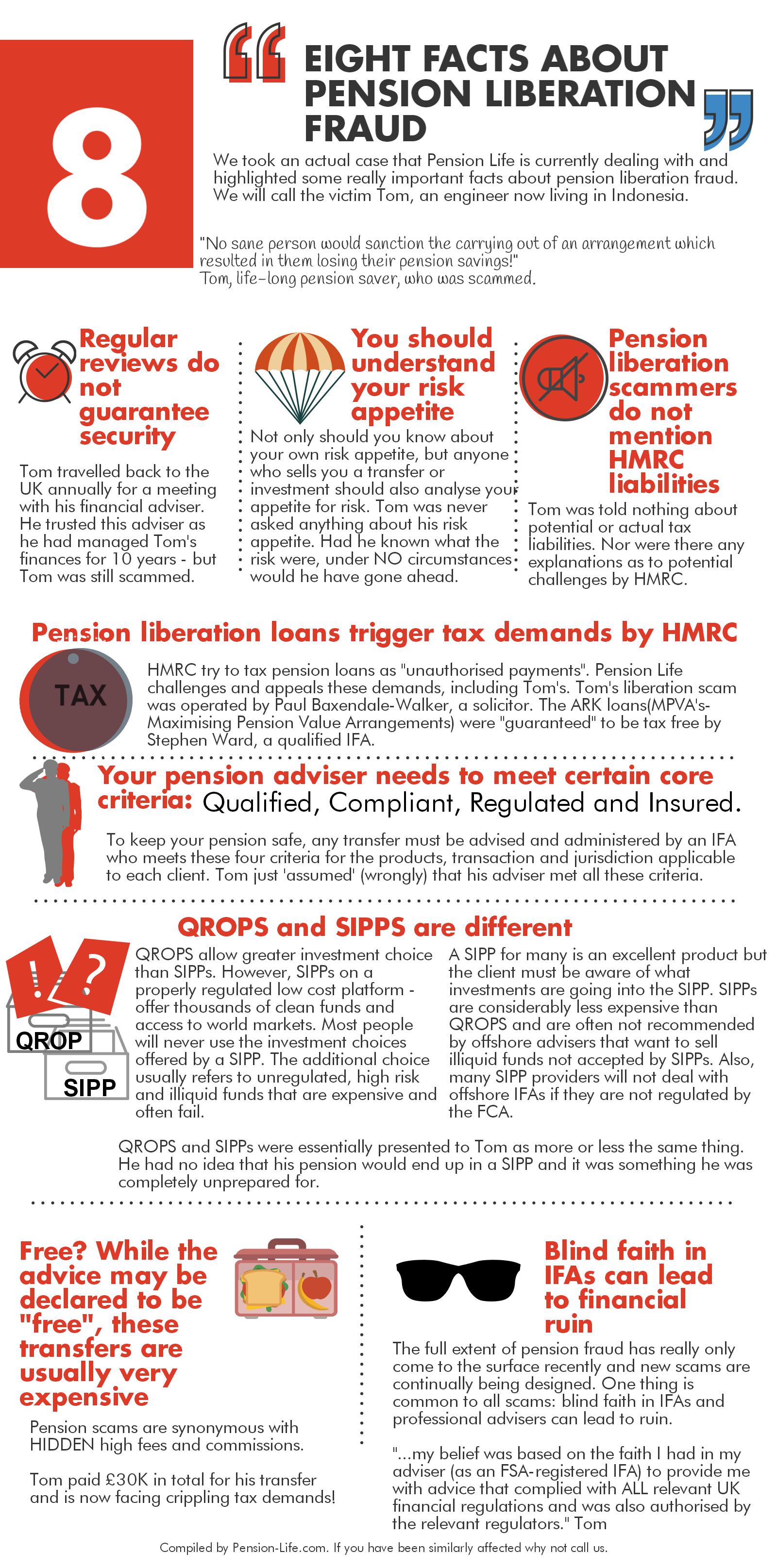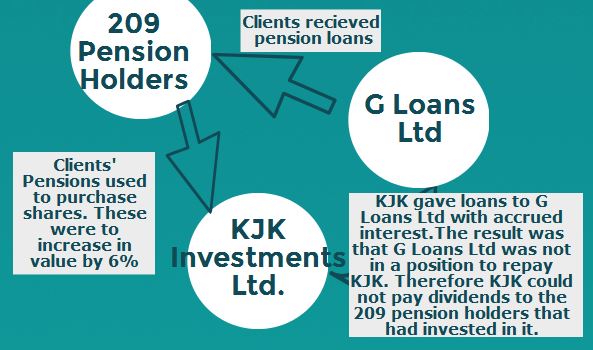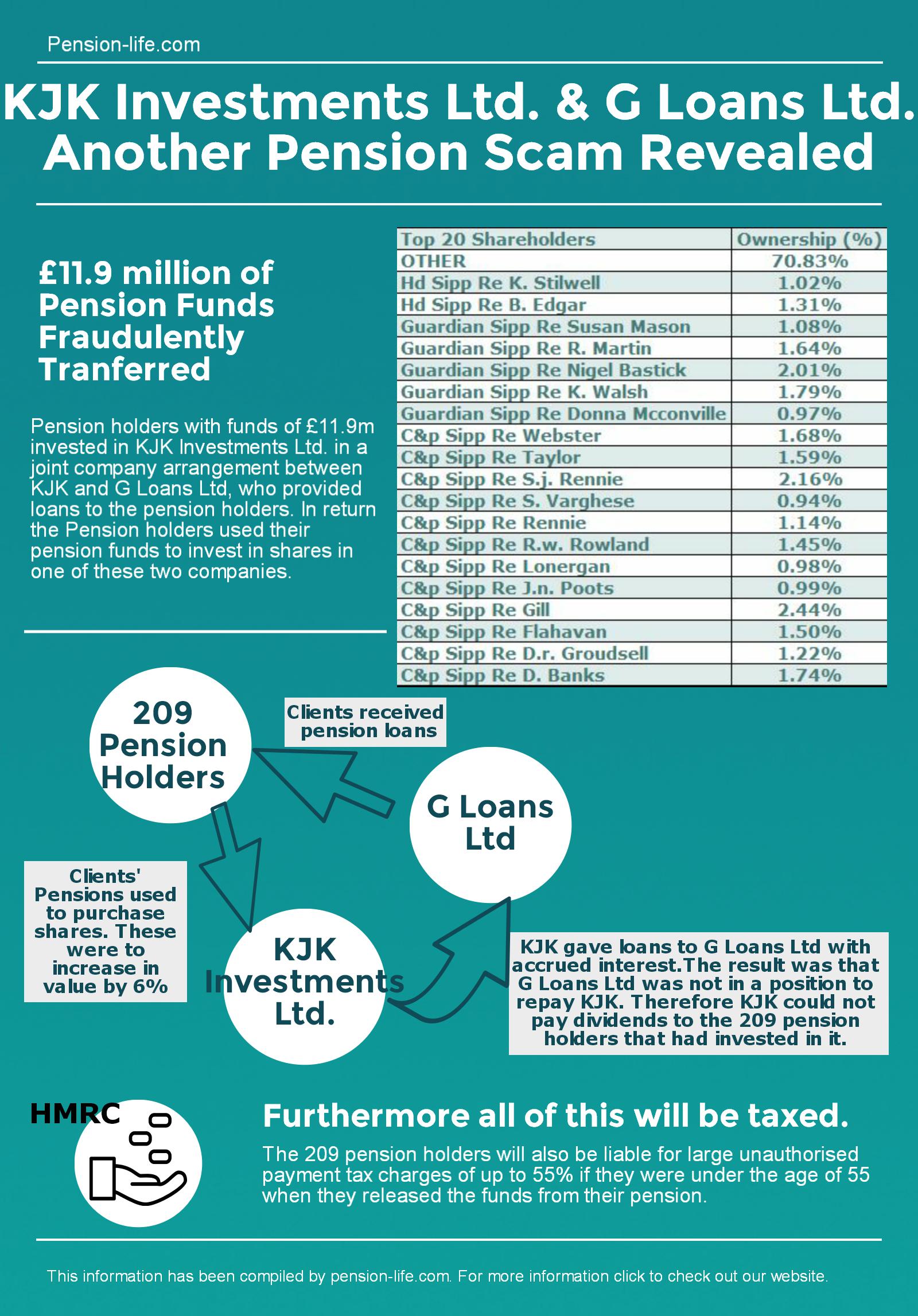HMRC Pension LOAN WOLF
I am writing to explain the rather confusing “assessment” and “further assessment” appeal situation in relation to HMRC’s “pension loan wolf” situation. Although this is specifically aimed at the Ark case, it will also apply in most – if not all – other cases.
In a nutshell, the assessments are for the 55% unauthorised payment tax charges on the loans. The further assessments are for the “benefit” that the member has “enjoyed” through not having paid interest on the loans.
Here is HMRC’s explanation of their reasoning to try to tax the absence of interest on the “loans”:
“If the assessments are for small amounts these are to protect HMRC against the alternative argument that the loan is a benefit under S173 FA 2004. So for members who received loans in 2010/11, under the alternative argument a benefit in kind charge arises for 2011/12 (and every year thereafter until the loan is repaid/written off) based on the Benefit in Kind calculation ie 4% of the MPVA (loan) received each year. This is taxed at 40%.
Eg Loan of £10000 – Benefit charge £400 @ 40% = £160.”
Roughly translated into ordinary language, this means that HMRC do not know what the Tax Tribunals will let them get away with, so they are going to try to tax the loans everywhere – front, back, side, top, bottom. Ark is a bit more complicated because of the “reciprocal” situation, but HMRC will inevitably try to use the same approach with other schemes.
My defense and appeal argument against the Ark further assessments is as follows:
- Dalriada Trustees will be taking legal action to recover the loan which may result in profound financial loss for the member
- This member’s pension fund is severely depleted as a result of £11 million worth of unsecured personal loans which may or may not be recoverable, and in respect of which no interest has been received by the member’s scheme
- This member’s pension fund is further seriously prejudiced as a result of five years’ worth of trustees’ and legal fees – largely fueled by HMRC’s protracted prevarication over how, when and where to tax various aspects of the transfers/loans.
- There appears to be no end in sight to the overall financial loss this member will continue to face in the run up to the appeals being referred to the Tax Tribunals.
- Any “benefit in kind” which the member is arguably “enjoying” due to below market-rate interest payments, is more than eclipsed by the financial damage caused by the combination of HMRC’s and Dalriada’s actions over the last five years. The net result, therefore, far from being a benefit in kind is a significant “loss in kind”.
This argument is tailored and adapted for other schemes. But it is very important indeed to understand the relationship between the pension transfers and the loans, and encourage HMRC to act consistently – as well as asking the Tax Tribunals to use a consistent and fair approach. HMRC’s inconsistency has to date reflected their inability to make up their minds and has resulted in some schemes having the entire transfers taxed, while in others they are only taxing the loans.
THE RELATIONSHIP BETWEEN THE TRANSFERS AND THE LOANS
Firstly, let us be 100% clear about this: the transfers and the loans are absolutely inextricably linked – like Siamese twins that can’t be separated because they share the same vital organs. It may appear that I am weakening our arguments by taking this stance, but I don’t think separating the transfers from the loans is an argument that has legs, because it supports the claim by the scammers – i.e. that “there is no connection between the transfer and the loan”. I have struggled with some of the communications with HMRC because in some cases (most notably Michael Bridges in the Salmon Enterprises cases) HMRC has said that they do not accept there was ever a loan because there was no loan agreement. This is pure nonsense because in the Ark and other cases there were loan agreements sufficiently detailed and lengthy to have rivaled the entire works of Shakespeare, but HMRC still disregarded this and said “a loan by any other name would smell as rancid, and we will still tax it – loan agreement or no loan agreement”. The word “loan” is all part of the scam – whether accompanied by elaborate loan agreements and documentation or not. Calling the liberation of part (or all) of a pension a “loan” is like calling theft “setting free”; fraud “innovation”; scam “opportunity”; toxic investments “not traditionally available”.
In the Ark schemes, the relationship between the transfer and the loan was crystal clear (ish). A transferred his £100k pension to Lancaster; B transferred his £100k pension to Cranbourne. A lent B £50k; B lent A £50k. Therefore, neither borrowed money from their own fund but from the fund belonging to an (arguably) unconnected party. The Ark administrators claimed there was a “matching” process to pair up people with similar-sized transfers, and there was, apparently, a spreadsheet showing who lent money to whom, and who received money from whom.
This was the theory; but the reality was very different.
The Difference Between Theory And Practice Is Greater In Practice Than In Theory
No segregated (separated) accounts were kept for the Ark members, so it was in practice impossible to prove who made loans because all the funds were pooled in each of the six schemes. However, HMRC are trying to tax both ends of the loans i.e. those who received loans and those who made loans. This results in an anomalous situation because those who didn’t receive loans are still getting taxed. The further anomalous situation is that those who did receive loans will be pursued by the new trustees, Dalriada, for repayment of the loans (Dalriada will be taking legal action against the members to enforce repayment), but the unauthorised payment tax will still remain payable even if the loans are repaid. Add to this the fact that HMRC are also trying to tax the scheme itself for facilitating/allowing the reciprocal loan structure, and you have the potential for 55% at the receiving end; 55% at the making end; 40% at the scheme end; plus 40% of 4% a year in perpetuity (until the loans are repaid or written off). Let’s just hope the Tax Tribunal judge is not only sane but sober.
I have explained the Ark situation because it sets the scene for most – if not all – the other/subsequent ones. The difference was that far from making the loan mechanism transparent and obvious, the organisers of the rest have gone to elaborate lengths to try to create the illusion that there was no connection between the transfer and the loan. For example, Stephen Ward and his Evergreen liberation scam: members in Spain transferred their UK pensions to a New Zealand QROPS and received a 50% loan from a company in Cyprus. Then both Ward and Simon Swallow of Evergreen tried to claim there was no connection between the transfer and the loan. What they went to great lengths to conceal was that the funds for the loans were supplied by Penrich and Spectrum; and 41% of the assets of the Evergreen fund consisted of (yes, you guessed it!) Penrich and Spectrum.
Other schemes had multiple layers of obfuscation, smoke and mirrors: members’ funds were transferred into scheme A which made a loan to B which made a loan to C which made a loan to the members (e.g. Pennines – also in the hands of Dalriada Trustees). In fact, the only scheme that I know of which didn’t bother at all with any of this (somewhat tedious) subterfuge was Windsor Pensions, run by Steve Pimlott (who, coincidentally, is based in Florida not far from where Stephen Ward is hiding out currently). Pimlott didn’t bother with any of this “loans” nonsense: he just set up fraudulent bank accounts in the names of obscure QROPS, and then duped the ceding providers into transferring members’ funds into those bank accounts. Pimlott then retained his extortionate fees and sent the rest of the pension fund to the member by cheque. He claims to have done over 5,000 of these and is still at it to this day (he offered me one a couple of months ago when I was doing some “secret shopping”).
I have gone into to this in some depth because I want to make it clear that nobody – least of all HMRC – is ever going to believe for a second that the pension transfers are totally unconnected to the loans. I don’t want to waste a second of my or your time, effort or intelligence even considering that argument. The argument which is relevant to both types of assessment i.e. the original one for 55% and the subsequent “further” assessment for 40% on the alleged “benefit in kind” on the loan interest is as follows:
- Protected Assessment of 55% on the “loan”: to my knowledge, across all the pension liberation schemes included in the Class Action – Ark, Evergreen, Capita Oak, Westminster, Salmon Enterprises, Pennines, Mendip, Headforte, Southlands, Windsor Pensions, etc., not one single member consciously took the decision to liberate part of their pension before the age of 55 knowing – or even suspecting – they were exposing themselves to an unauthorised payment charge. (Actually, that is not entirely true as I do know of two people and I have refused to represent them). Every single Class Action member was a victim of a scam and was defrauded into believing that the “loan” structure was a legitimate, lawful, bona fide mechanism which exploited a tax law “loophole” and that there would never be any tax to pay. Victims were sold/advised/introduced by a variety of parties – including IFA’s, solicitors, accountants, introducers, brokers, debt counsellors, and assorted regulated and unregulated professionals.
- Further Protected Assessment of 40% on the “benefit in kind” on the “loan”: to my knowledge, not a single member has escaped without either partial or total loss to their pension fund – and potential total financial ruin/poverty in retirement. The majority of the assets of the various schemes were invested in toxic, illiquid, high risk assets – much of which paid handsome introduction commissions to the scammers as the prices were hugely inflated to start with. In cases where Dalriada Trustees have been appointed, there are huge losses to the value of the schemes because of trustees’ and legal fees over a period of up to five years. Reverting to my point that the transfers and the loans are inextricably linked, our position is that any small benefit that a member may have “enjoyed” as a result of not paying market-rate interest, is eclipsed to an enormous extent by the losses suffered on the funds. In fact, if we were to add in the cost of loss of earnings, legal fees and medical treatment due to the extensive stress, mental/physical suffering and marriage breakdowns caused by these scams, the piffling “benefit” which HMRC is trying to tax in the further assessments would be laughable if it weren’t so tragic.
My final point is that HMRC is responsible for these scams. HMRC registered the schemes without due diligence, then failed to de-register them when it became obvious they were operating pension liberation “loans”. HMRC has been negligent, slow, inconsistent, intractable and has failed to observe its own charter:
https://www.gov.uk/government/publications/your-charter/your-charter
“We want to give you a service that is fair, accurate and based on mutual trust and respect”. I don’t think a single victim has the least degree of trust or respect for HMRC as they registered these scams – often to the same scammers over and over again.
“We also want to make it as easy as we can for you to get things right”. Registering pension schemes without due diligence to known, repeat scammers hardly makes anything easy for the victims. Failing to de-register schemes as soon as it was discovered they were scams contributed to the ease with which the scammers succeeded in continually defrauding thousands of victims.
“You can expect us to respect you and treat you as honest” All of the people sucked into these various liberation scams were victims of fraud and were entirely innocent and honest. They are now being treated and penalized as though they have done something wrong – despite having been advised by solicitors, accountants and financial advisers that the schemes were lawful and tax compliant in the first place.
“Provide a helpful, efficient and effective service” HMRC has known since 2006 that HMRC registration no longer meant HMRC “approved”. It has been clear that the scammers have used the term “HMRC approved” falsely as part of the defrauding process to lull victims into a false sense of security. But still HMRC has done nothing since 2010 to avoid registering schemes to scammers. This has not been helpful, efficient or effective, since as well as registering schemes to known repeat offenders, HMRC has not checked that sponsoring employers had ever traded or employed anybody (or were ever likely to) or – as in the case of Capita Oak and Westminster – that it even existed at all.
“Be professional and act with integrity” As above.
“Tackle those who bend or break the rules” Apart from the scammers behind Tudor Capital Management’s 25 different scams – including Salmon Enterprises – (now enjoying Her Majesty’s pleasure), the rest are still at large. Many of the known, repeat scammers have also committed large-scale tax evasion themselves, but remain free to this very day to continue their pension liberation operations in the UK and offshore. In fact, even when evidence against one of the leading scammers was handed to HMRC by me in June 2014 (including information on Stephen Ward’s Dorrixo Alliance), HMRC did absolutely nothing. Two months later a serving Police officer lost his Police pension to Dorrixo Alliance’s London Quantum scam, which is now in the hands of Dalriada Trustees. The officer is now too ill to continue his duties as a result of the stress and sleepless nights caused by this tragedy.
As HMRC’s “Dame Disaster” Lin Homer is about to be replaced by Edward Troup, and the DWP’s light-fingered, mendacious Iain Duncan-Smith has just been replaced by Stephen Crabb, perhaps we will at last be able to negotiate a tax amnesty for victims of pension liberation fraud. Despite the many disasters presided over by his predecessors, Crabb might just turn out to be the very hero within government we have so long sought. If he does turn out to be any good, let’s just hope he doesn’t get stabbed in the back by Altmann like Duncan-Smith was. Because that indeed would be tragic.
Top 10 Deadliest Pension Scammers

























